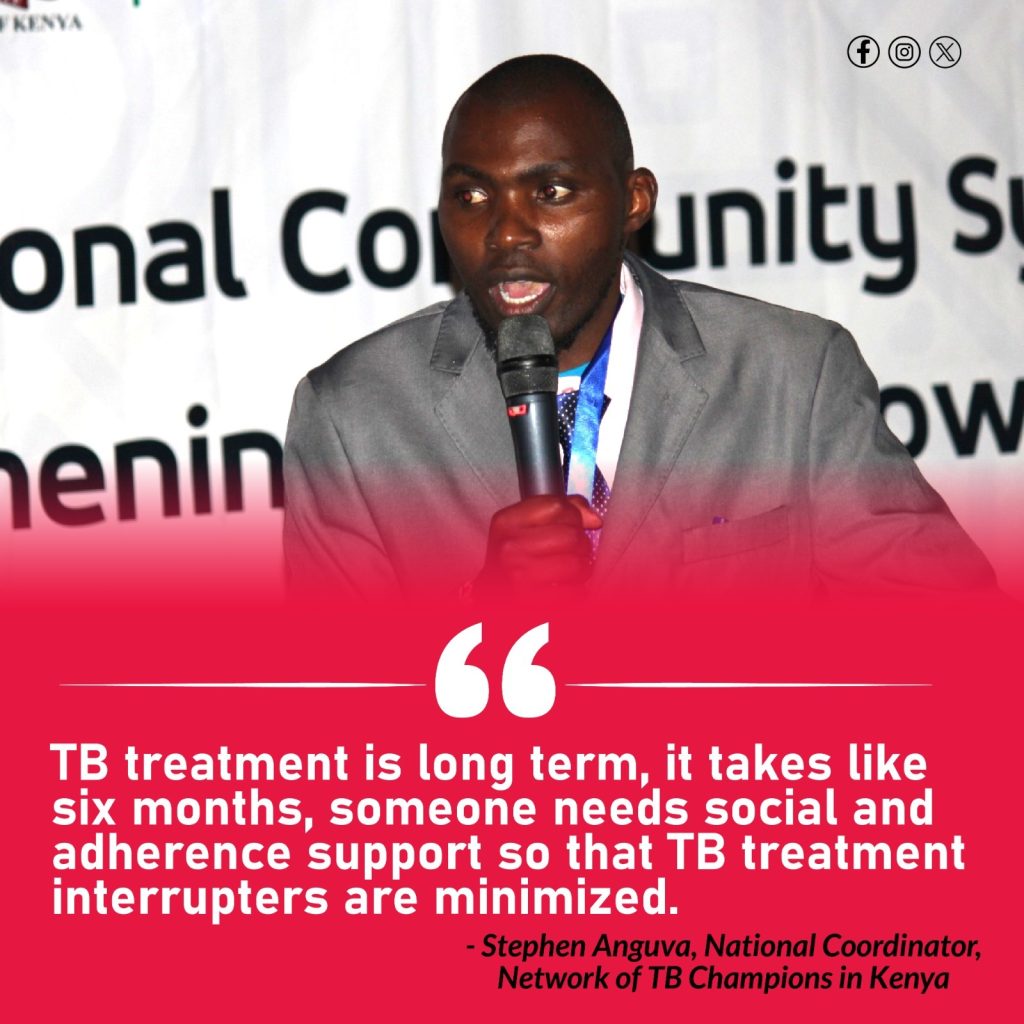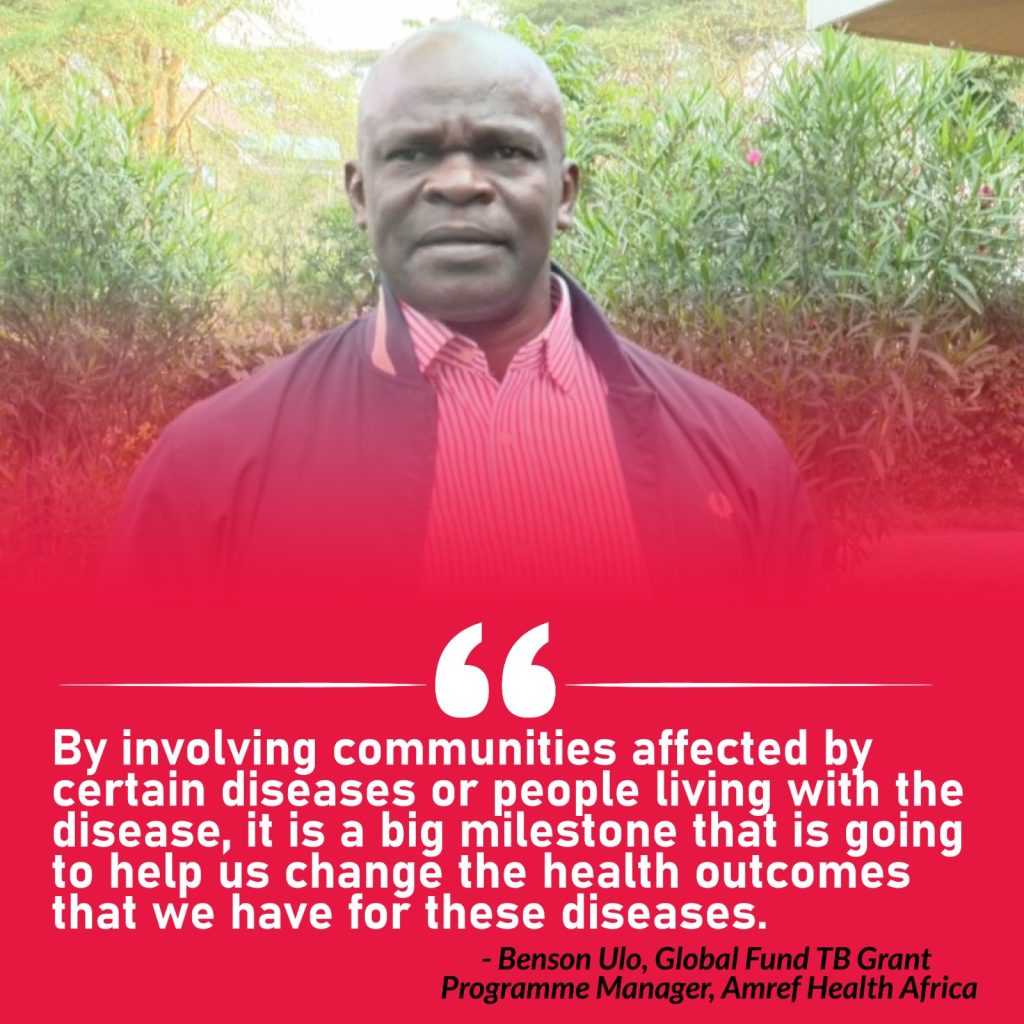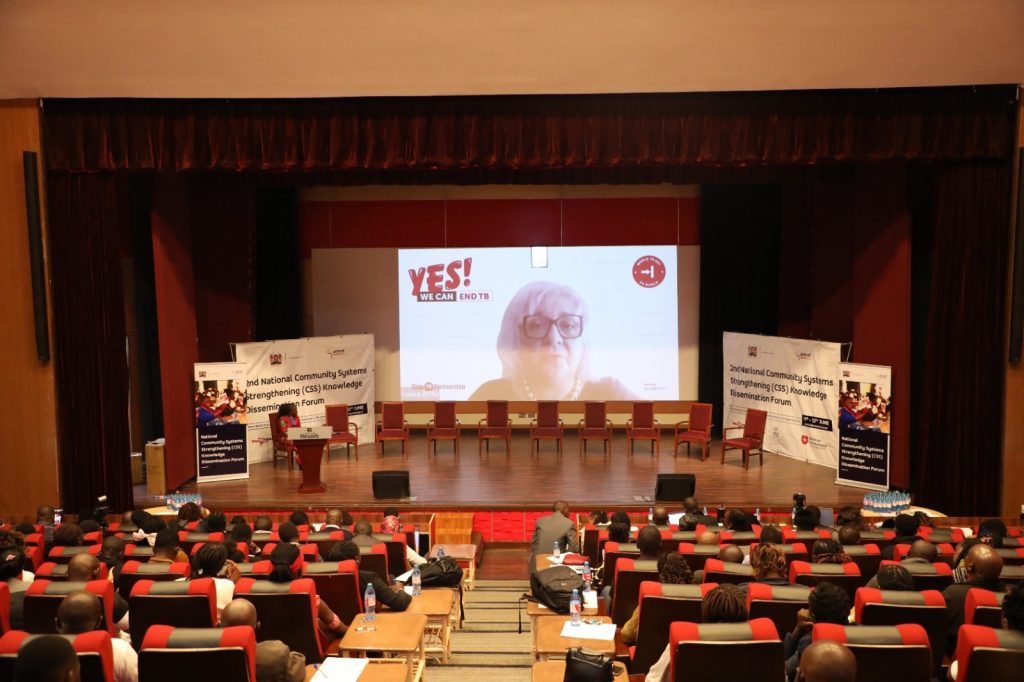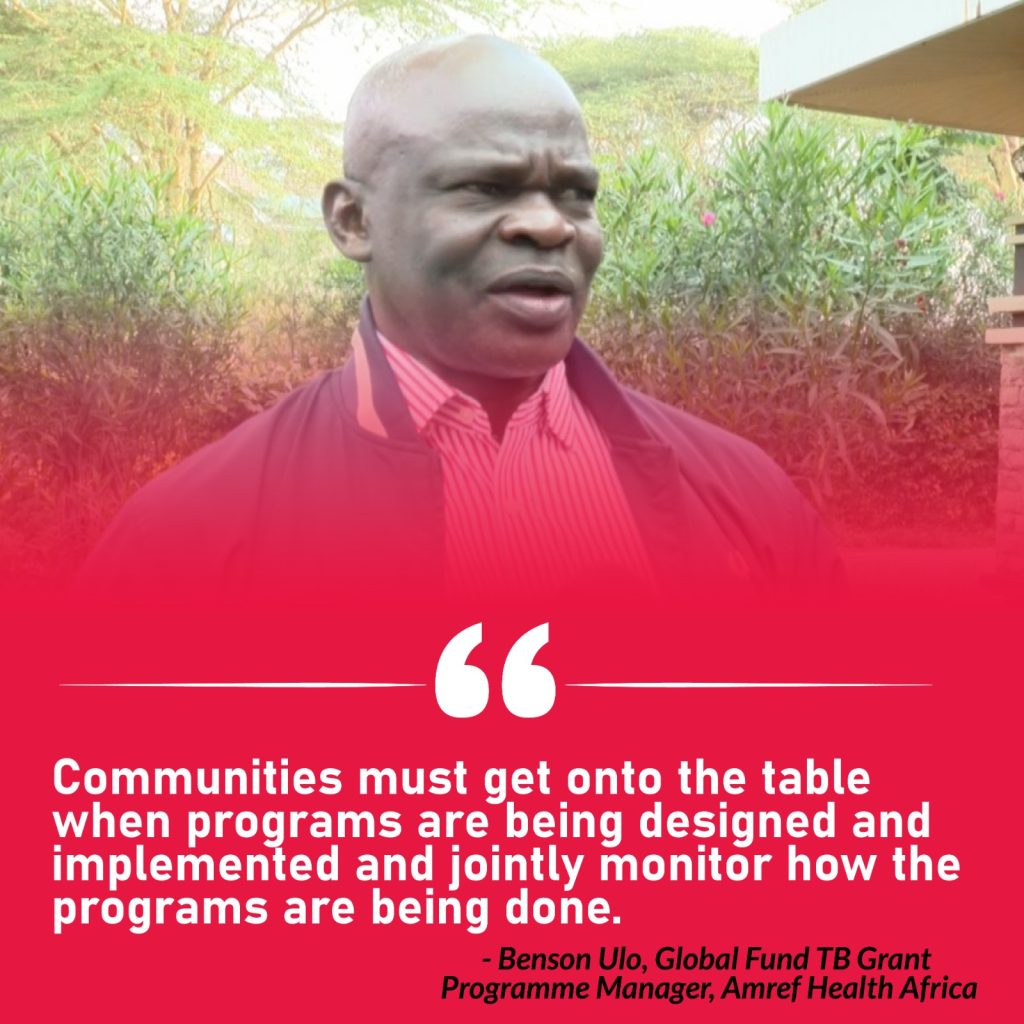Implementation of community engagement programmes will help address health inequalities and promote the uptake of health services. This was the main message this week during the second National Community Systems Strengthening Knowledge Dissemination Forum in Naivasha.
Experts attending the forum, and who are drawn from various institutions, said for continuous healthcare delivery, community voices cannot be ignored.
Global Fund TB Grant Programme Manager at Amref Health Africa Benson Ulo says the involvement of communities contributes greatly to achieving the desired outcomes.
“Communities must get onto the table when programs are being designed and implemented and jointly monitor how the programs are being done,” Ulo states
Stakeholders in the forum drawn from all 47 counties were meeting to also share lessons on best practices from the diverse Community Systems Strengthening (CSS) interventions deployed especially with a focus on conditions such as Tuberculosis TB, HIV/AIDS, Malaria as well as Sexual and Reproductive Health Rights (SRHR).

For instance, in the case of TB, Evaline Kibuchi, the Chief National Coordinator of Stop TB Partnership Kenya notes that the first contact of TB patients is within the community, and therefore involving them in intervention measures is important.
“Kenya has been making progress, TB-related mortalities moved from 33,000 as of the end of 2019 to 17,000 as of the end of 2022. Engaging communities in TB response has played a big role in these gains,” said Kubuchi, who is also a TB advocate
The goal, she says, is to have health services that are accessible, affordable, and acceptable to the community.
TB has remained a huge problem, not just in Kenya but globally. Kenya is listed among 30 countries that contribute 80% of the global TB burden.
Philip Nyakwana of Kenya Creative Mechanism for Global Fund, TB, HIV and Malaria holds a similar view reiterating that a country is only as strong and resilient as its systems.
“In many responses around HIV, TB, and Malaria, communities should be well prepared so that they are able to collect information and report back,” he said

Stephen Anguva, the National Coordinator of Network of TB Champions in Kenya acknowledges that progress has been made since TB screening and testing have been made free in Government hospitals and mission facilities. He further disclosed that case finding has improved largely due to the presence of Community Health Promoters (CHPs) and TB champions who traverse communities creating awareness and referring suspected cases.
He says the information generated from communities forms national-level advocacy with policymakers for a solution to be sought.
“TB treatment is long term, it takes like six months, someone needs social and adherence support so that TB treatment interrupters are minimized. This is where CHPs and TB champions come in,” averred Anguva
He says for the set TB targets to be met, more awareness needs to be created for the reason that most people assume TB only affects the lungs, yet others get TB of the back and spine. Anguva reiterates the need to have TB diagnosis at the grassroots enhanced. He further says there should be an uninterrupted supply of TB commodities and meaningful engagements of people affected by TB so that their views are incorporated into policies.


Community Systems Strengthening (CCS) works around four key areas; Institutional Capacity Building – where building capacity in community-led organizations is applied so that they can mobilize resources and be in a position to respond to health challenges raised; Community-Led Monitoring (CLM) where quality of health services provided at various facilities is monitored using technology and reporting back; Community-Led Advocacy and Research (CLAR), with research identified as the key in improving health systems; as well as Social Contracting – where gaps within the health system that government is not able to address are identified.
Kibuchi from Stop TB Partnership Kenya, at the same time, pointed out that Kenya was fast in adopting new technologies and lauded this as a step in the right direction, especially as far as helping TB targets to be achieved goes.
“Computer-aided technology is being used in TB diagnosis, we are in the process of adopting shorter-treatment and injectable-free for drug-resistant TB,” she said
Despite these gains, she is concerned that only a few counties allocate money for TB in their budgets.
‘If Kenya is to achieve the set target to end TB by 2030, then counties must allocate funds towards TB response. We are looking forward to getting an effective vaccine that would prevent one from getting TB, this has been the rallying call at a global level. There are a number of vaccine trials being tried, hopefully, one of them bears fruits,” she says.

Ulo notes that Amref is closely working with the Ministry of Health and other relevant stakeholders in the health space to address Community Systems Strengthening (CSS) towards the TB response.
“Involving communities affected by certain diseases or people living with the disease is a big milestone that is going to help us change the health outcomes that we have for these diseases,” he adds
“If the systems are strengthened, supported, and capacity built, then they can respond to various health challenges,” he said
Currently, Kenya has put in place intervention measures geared towards meeting the set targets of ending TB by 2030, and communities are at the center.





